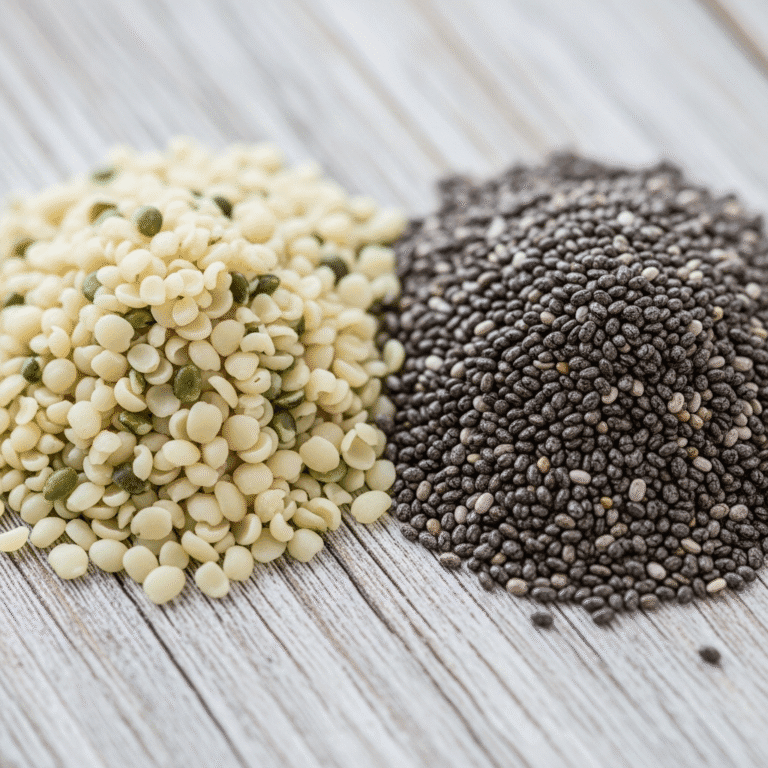FREE SHIPPING OVER $50
Weight Loss Stuck? Dietitians Reveal 7 Hidden Reasons Your Calorie Deficit Isn’t Working

You’re counting calories, you’re tracking macros, you’re putting in the work at the gym, and you’re pretty sure you’re in a calorie deficit. Yet, when you step on the scale, the numbers refuse to budge. Or perhaps, worse, they’re even going up. If this sounds like your current weight loss journey, you’re not alone. It’s an incredibly frustrating experience, leaving many wondering if their metabolism is broken or if they’re simply destined to be stuck at their current weight.
The common wisdom tells us that weight loss is a simple equation: calories in versus calories out. If you consume fewer calories than you burn, you should lose weight. While this principle holds true, the reality is far more nuanced than a simple math problem. There are numerous factors at play, many of them hidden, that can derail your progress even when you think you’re doing everything right.
The Calorie Deficit Conundrum: More Than Just Math
Before we dive into the hidden reasons, let’s acknowledge the fundamental truth: a calorie deficit is necessary for weight loss. To lose one pound of fat, you generally need to create a deficit of approximately 3,500 calories. However, our bodies are not simple calculators. They are complex biological systems influenced by hormones, sleep, stress, and even the type of food we eat.
This is why simply cutting calories isn’t always enough. Your body adapts, sometimes in unexpected ways. It’s time to look beyond the basic math and uncover the subtle, yet powerful, factors that dietitians say are keeping you stuck.
7 Hidden Reasons Your Calorie Deficit Isn’t Working
These hidden reasons often fly under the radar, even for diligent dieters. Understanding them is the first step toward breaking through your weight loss plateau and finally seeing the scale move in the right direction.
1. You’re Underestimating Your Calorie Intake (The Sneaky Calories)
This is perhaps the most common reason, and it’s easy to fall victim to it. Even if you’re tracking, small forgotten bites, extra drizzles of oil, generous serving sizes, or a handful of untracked nuts can quickly add up.
- Dietitian Insight: Many people underestimate liquid calories from sodas, specialty coffees, or even “healthy” smoothies. Sauces, dressings, and cooking oils are also notorious for adding significant calories that often get overlooked in tracking apps. A study indicated that people often underestimate their caloric intake by a considerable margin.
- How to Fix It: Be meticulously honest with your tracking for at least a week. Weigh and measure portions, especially calorie-dense foods. Track everything, including condiments and drinks. Use a kitchen scale for accuracy.
2. You’re Overestimating Your Calorie Burn (The Workout Myth)
You crushed that workout, so surely you burned a ton of calories, right? Not always. Fitness trackers and gym machines often overestimate calorie expenditure, sometimes by a significant amount. This can lead to thinking you have more “wiggle room” with your food intake than you actually do.
- Dietitian Insight: Your body becomes more efficient at exercise over time, meaning you burn fewer calories doing the same activity. Plus, your Basal Metabolic Rate (BMR) – the calories your body burns at rest – forms the bulk of your daily expenditure, and it can fluctuate.
- How to Fix It: Don’t “eat back” all your exercise calories. Treat exercise as a bonus for health and fitness, not a license to overeat. Focus on creating your calorie deficit primarily through your diet.
3. Metabolic Adaptation (Your Body Fights Back)
When you consistently eat in a calorie deficit, your body is incredibly smart and adapts to conserve energy. This phenomenon, known as metabolic adaptation or “adaptive thermogenesis,” means your metabolism can slow down to match your lower calorie intake.4 Your body becomes more efficient at doing everything, burning fewer calories even at rest.
- Dietitian Insight: This isn’t your metabolism being “broken,” but rather your body trying to protect itself from perceived starvation. It can reduce the amount of energy burned through non-exercise activity thermogenesis (NEAT) and even lower the calories burned during digestion.
- How to Fix It: Consider strategic diet breaks (e.g., a week at maintenance calories) or a slight increase in calorie intake to signal to your body that food isn’t scarce. Also, focus on strength training to maintain or build muscle mass, which is metabolically active and helps counteract metabolic slowdown.
4. Poor Sleep Quality (The Silent Saboteur)
Lack of quality sleep does far more than just make you tired. It profoundly impacts hormones that regulate appetite and fat storage, directly sabotaging your weight loss efforts.
- Dietitian Insight: Sleep deprivation increases ghrelin (the hunger hormone) and decreases leptin (the satiety hormone), making you feel hungrier and less satisfied, often leading to cravings for high-calorie, high-carb foods. It also elevates cortisol, the stress hormone, which encourages belly fat storage. Research showed that sleep restriction significantly reduced fat loss and increased muscle loss during weight loss.
- How to Fix It: Prioritize 7-9 hours of quality sleep per night. Establish a consistent sleep schedule, create a relaxing bedtime routine, and optimize your sleep environment (dark, quiet, cool).
5. Chronic Stress (The Cortisol Connection)
Modern life is stressful, and chronic stress can wreak havoc on your weight loss goals, even if you’re meticulously tracking calories. When you’re stressed, your body releases cortisol.
- Dietitian Insight: Persistently high cortisol levels not only increase appetite and cravings for comfort foods but also promote fat storage, particularly around the abdomen. Chronic stress can also lead to inflammation, which can further impede weight loss.
- How to Fix It: Implement daily stress-reduction techniques. This could include meditation, deep breathing exercises, yoga, spending time in nature, journaling, or engaging in hobbies you enjoy. Find what truly helps you de-stress and make it a non-negotiable part of your day.
6. Micronutrient Deficiencies (The Missing Links)
While you might be counting macronutrients (protein, carbs, fats), you could be overlooking the crucial role of micronutrients (vitamins and minerals). Deficiencies in certain vitamins and minerals can impair metabolic processes, energy production, and hormonal balance, making weight loss harder.
- Dietitian Insight: Common deficiencies that can impact metabolism include Vitamin D, B vitamins, magnesium, and iron. These nutrients are vital co-factors in countless biochemical reactions that burn fat and produce energy.
- How to Fix It: Focus on a nutrient-dense diet rich in diverse fruits, vegetables, whole grains, lean proteins, and healthy fats. Consider getting a blood test from your doctor to identify any specific deficiencies. Only supplement under the guidance of a health professional.
7. Gut Health Imbalances (Your Inner Ecosystem)
Your gut microbiome, the trillions of bacteria living in your intestines, plays a powerful role in your metabolism, appetite regulation, and even how your body stores fat. An imbalance in your gut bacteria (dysbiosis) can contribute to weight loss resistance.
- Dietitian Insight: Certain types of gut bacteria are more efficient at extracting calories from food, potentially meaning you absorb more calories from the same meal compared to someone with a healthier microbiome. Dysbiosis can also lead to inflammation and impact satiety signals.
- How to Fix It: Consume a diverse diet rich in fiber (prebiotics from fruits, vegetables, whole grains), include fermented foods (probiotics like yogurt, kefir, sauerkraut), and limit processed foods, added sugars, and artificial sweeteners that can disrupt gut health.
Breaking Through the Plateau: Your Next Steps
Feeling stuck in your weight loss journey can be incredibly demoralizing, but understanding these hidden reasons is the key to unlocking your progress. It’s not about trying harder; it’s about trying smarter.
- Re-evaluate Your Intake: Go back to basics with meticulous food tracking for a week, paying attention to every single bite and sip.
- Prioritize Sleep & Stress: Don’t underestimate the power of these two often-neglected pillars of health.
- Nourish Your Body: Focus on nutrient-dense, whole foods to address potential micronutrient deficiencies and support gut health.
- Consult a Professional: If you’re consistently stuck, consider working with a registered dietitian. They can provide personalized guidance, help identify underlying issues, and create a sustainable plan tailored to your body’s unique needs.
Remember, weight loss is rarely a linear journey. Plateaus are normal, but they are also opportunities to learn more about your body and fine-tune your approach. By addressing these 7 hidden reasons your calorie deficit isn’t working, you can finally move past the frustration and achieve the lasting weight loss you desire. Your breakthrough is closer than you think!
Related Articles
- Say Goodbye to Hormonal Belly: Experts Pinpoint 4 Foods to Eliminate for a Flatter Stomach (Yes, Even Dairy!)
- 20 Lazy Ways to Shed Pounds (You Won’t Even Feel Like You’re Dieting!)
- Over 50 & Overweight? 7 Simple Habits to Kickstart Weight Loss (Backed by Science!)
- Shred Fat Faster: 7 Vegan Diet Hacks That Outperform Keto for Rapid Weight Loss
- Melt Your Double Chin in 7 Days? This 5-Minute ‘Jawline Sculpting’ Trick Works!







